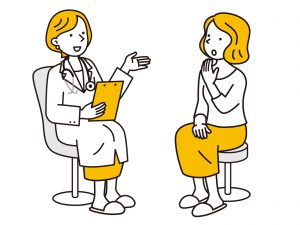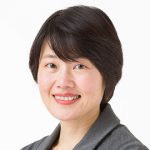Our analysis of cancer records in Taiwan indicated that physician cancer patients enjoy higher long-term survival, are less likely to use surgery or radiation, more likely to use targeted drug therapy and spend less on check-ups and coinsurance compared to non-physician-patients.
This advantage highlights the agency problem in healthcare, which deals with the consequences of the information asymmetry between doctors and patients. It has implications for how health resources are ultimately allocated. The hypothesis of doctor-driven demand has been established by research over the last decade. More recent research links communication and trust in physicians to the demand for treatment. However, no study has attempted to separate the influence of social relationships from informational advantages across multiple medical specializations.
We overcame this challenge by examining various medical specialists attending hospital cancer admissions while controlling for patient and doctor attributes. By focusing on physician-patients attended by the same doctor, we could disentangle the network effects from the information effects. Closer ties between physician-patients and attending doctors increase trust for the latter to induce more intensive care if the former is less informed. Informational mechanisms replace intensive care with target therapy for better survival. Informational advantages were identified as the dominant influence in treatment decisions, leading to higher survival rates.
A significant challenge for the analysis is that doctor selectivity, measured as the percentage of attended hospital patients who were physician-patients, was heavily skewed towards doctors chosen by physician-patients. In addition, some doctors’ selectivity grew as they became more experienced, requiring both attending doctors and admission time to be fixed in the sample to minimize bias over time. Hospital entries from 2004 to 2016 for advanced cancer patients with common treatments included nearly three million non-physician-patients and several hundreds of physician-patients.
 With the data, our research team employed several matching schemes to assess physician-patients’ effect on treatment choice and health outcomes. This included comparing physician-patients with non-physician-patients matched by doctor, hospital, demographics, and historical factors. The nearest neighbor matching procedure allowed complex interactions among these factors, such as time-varying treatment quality.
With the data, our research team employed several matching schemes to assess physician-patients’ effect on treatment choice and health outcomes. This included comparing physician-patients with non-physician-patients matched by doctor, hospital, demographics, and historical factors. The nearest neighbor matching procedure allowed complex interactions among these factors, such as time-varying treatment quality.
This core matching showed that physician-patients receive fewer surgery/radiation treatments than the matched non-physicians while spending more on drugs and targeted therapy. Check-up and surgery costs were reduced overall. They also experienced significantly higher short and mid-term survival rates. The results were consistent with the general predictions estimated by conventional models.
Several competing theories were considered to explain the observed reduction in intensive care and improved survival by physician-patients. These included earlier diagnosis, better health status, or more likelihood of suing for malpractice. Each of these was tested against matching estimates and evaluated as unlikely explanations.
Our team then looked at a final possibility that other influential differences between patient groups, such as education, clinical knowledge, risk aversion, and trust in doctors, were unobserved by the matching methods. We analyzed whether treatment changed with informational or relational advantages among physician-patients.
Physician-patients with specialties in the same field as the attending doctor was designated as professionally tied, having a likelihood of previously meeting the doctor on professional occasions. Those with specialties related to their cancer condition were designated as more informed. Stringent matches were used while controlling for patient backgrounds, comparing 73 physician-patients with solid professional ties and 80 without, attended by 11 doctors in 5 hospitals.
Our team found that the relational advantage extensively increased treatment by surgery, radiation, acute care, and palliative care. This explained the drastically improved survival rates in the short term observed for such patients. Both relational and informational advantages increased spending on medication cost and targeted therapy, with the informational influence being more extensive. Relational advantages were ruled out as an explanation for the average physician-patient’s reduced check-up costs and less likelihood of using surgery and radiation therapy at later stages. As a result, informational advantages were the dominant influence on these treatment decisions.
Our team’s results are the first to empirically separate relational effects from informational ones outside a single medical specialty. Future studies could build on this pioneering work by exploring other relational and informational mechanisms to match physician-patients and broadening the sample size.
The study affirms that patient risk-aversion leads to undervaluing intensive care and less likelihood of choosing it. This can be mitigated by a stronger relationship between patient and doctor to build trust and improve communication. The longer-term benefit to cancer survival offered by informational advantages was highlighted, adding a new dimension for research into healthcare agency problems.
(Editor: Clement Ng)
Related links
“Physicians Treating Physicians: Relational and Informational Advantages in Treatment and Survival”
Stacey H. Chen, Jennjou Chen, Hongwei Chuang, and Tzu-Hsin Lin
(Journal of Labor Economics, accepted on April 21, 2023, published on October 29, 2024, as the leading piece for the 2025 issue(PDF))



